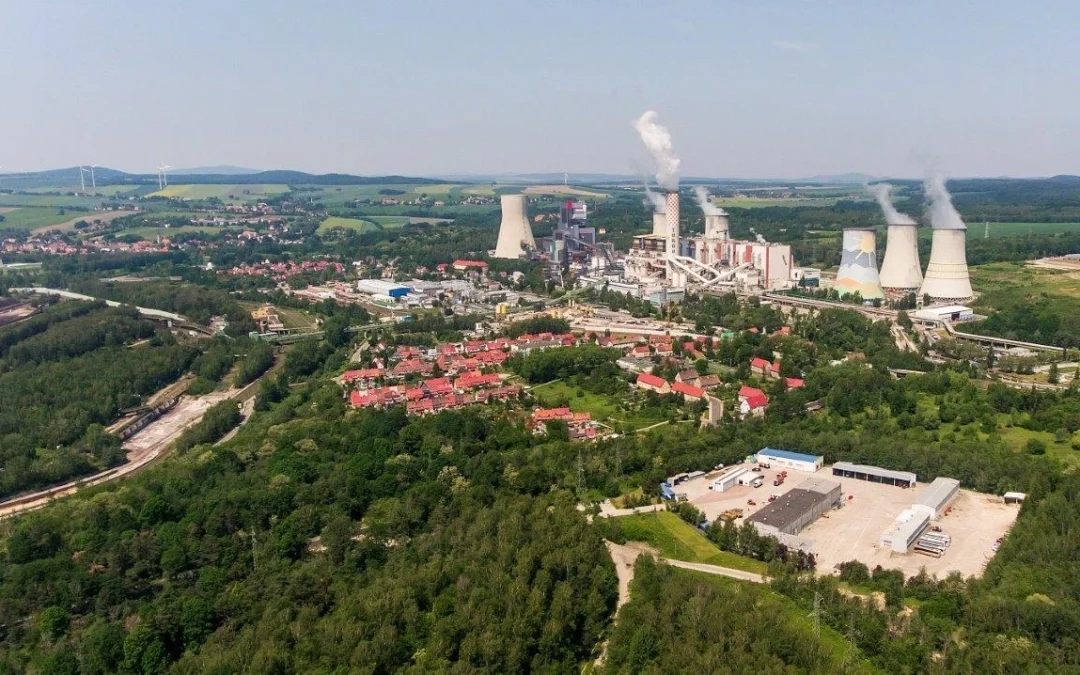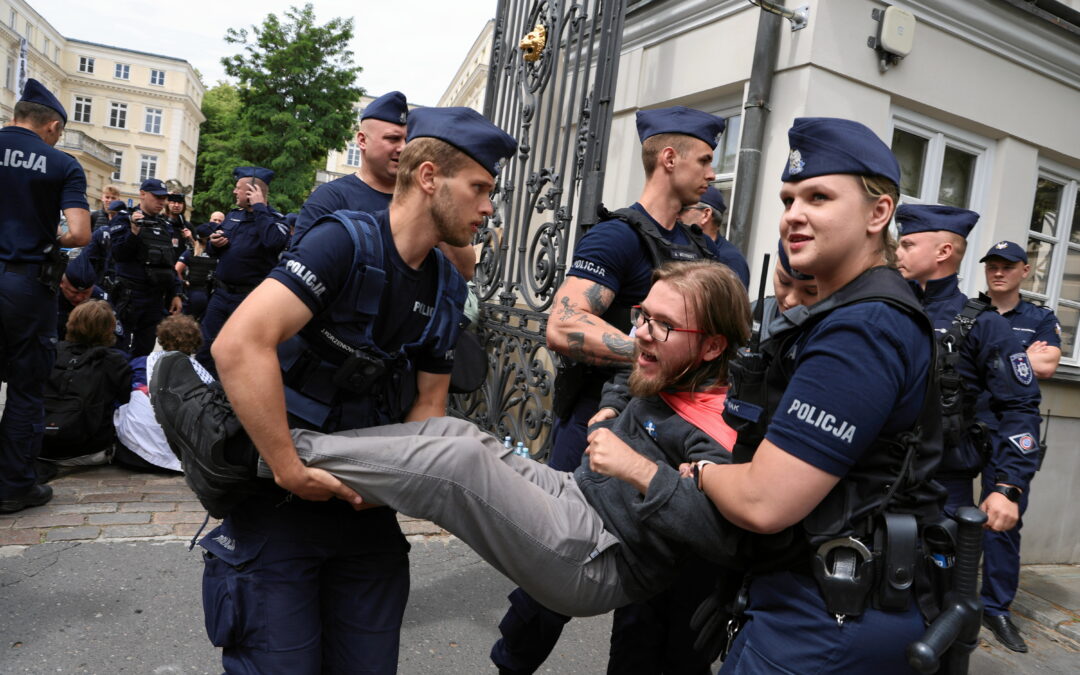An agreement between Poland and the Czech Republic to end an environmental dispute over the Turów coal mine, which sits on the Polish side of their shared border, is being successfully implemented and is having a positive effect, the countries have confirmed.
In particular, an underground barrier installed by the mine’s owner, Polish state energy group PGE, has resulted in groundwater levels on the Czech side of the border rising. Their earlier decline had been one of the main complaints from Prague, which took the issue to the Court of Justice of the European Union (CJEU) in 2021.
The following year, the then Polish government, led by the Law and Justice (PiS) party, signed an agreement with its Czech counterpart that brought the dispute to an end.
It included Poland pledging to pay €45 million in compensation and to implement measures to reduce the impact of the mine on the Czech Republic, including the underground barrier as well as a dyke to protect the region’s residents from air, noise and dust pollution.
Following a meeting this week between Polish climate minister Paulina Hennig-Kloska – part of the government that replaced PiS in December – and Czech ambassador Břetislav Dančák on Thursday, the ministry announced that “both parties agreed that the agreement is being implemented as expected”.
“We are pleased with the latest monitoring results, which show that groundwater levels in the area are rising,” they added. “The mine is also implementing measures to reduce noise, dust and light emissions on an ongoing basis.”
The ministry noted that, in accordance with the agreement, the Polish side is regularly providing the Czech Republic with the results of its environmental monitoring around the mine, including on noise levels and air quality.
Minister klimatu i środowiska @hennigkloska spotkała się z Ambasadorem Republiki Czeskiej w Polsce Břetislav’em Dančák’kiem. Głównymi tematami spotkania była realizacja umowy dot. KWB Turów i współpracy na rzecz transformacji energetycznej.
Czytaj więcej ▶️…
— Ministerstwo Klimatu i Środowiska (@MKiS_GOV_PL) June 6, 2024
Last month the Czech environment ministry also reported that, between September 2023 and April 2024, underground water levels in the Czech region bordering Poland near the mine have risen for the first time in a decade.
“There has been an increase in groundwater levels in all four [monitored] wells,” said the Czech ministry, quoted by Business Insider Polska. “At the same time, it can be seen that the water level is rising even in wells up to 850 metres away from the barrier.”
According to PGE, tests on the effectiveness of the underground barrier have shown that groundwater levels increased by more than 4.6 metres.
Czesi zadowoleni z badań wód koło kopalni Turów. Wynik najlepszy od 10 lat https://t.co/rx8VgfRNAD
— Business Insider Polska 🇵🇱 (@BIPolska) May 14, 2024
Despite the 2022 agreement between Poland and the Czech Republic, disputes over Turów – which produces coal that generates around 7% of Poland’s electricity – have continued to rumble on, putting the mine’s future in doubt.
Last year, the PiS government extended the mine’s concession from 2026 to 2044 but that decision was since revoked by a Polish court, which found that the permit was issued in violation of the agreement with the Czech Republic. Last week, PGE filed an appeal against the ruling.
Meanwhile, last week the CJEU rejected a Polish complaint over the European Commission’s decision to take money from Poland’s EU funds to cover unpaid fines for refusing to comply with an order to close the mine.
A court has revoked an environmental permit issued to Turów coal mine, finding it was issued in violation of an agreement with the Czech Republic, on whose border the mine is located.
The environmental groups that brought the case have welcomed the ruling https://t.co/E4Xo5vJX6O
— Notes from Poland 🇵🇱 (@notesfrompoland) March 14, 2024

Notes from Poland is run by a small editorial team and published by an independent, non-profit foundation that is funded through donations from our readers. We cannot do what we do without your support.
Main image credit: PGE press release

Alicja Ptak is senior editor at Notes from Poland and a multimedia journalist. She previously worked for Reuters.



















